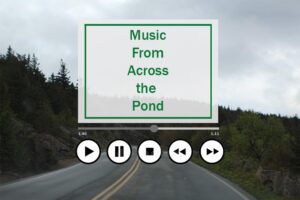Today I took my final exam for my Ulpan class. The past four weeks, as I’ve briefly described, me and the rest of the study abroad students here at Tel Aviv University have been attending an intensive Hebrew course every day from 8:30 a.m. to 1 p.m. The course is mandatory for all students, but students aren’t the only ones who take it; people who make Aliyah to come live in Israel take Ulpan as well, so my class had a couple from France, a graduate student from Amsterdam, a young woman who just moved from California and a young woman from England.
Hebrew is a fascinating language, and a very difficult one. The alphabet is comprised of 22 letters, but five of those letters have two different forms: the normal form that appears in the middle of a word, and a separate form for when that letter is the last letter of the word. On top of this, there are two silent letters in the Hebrew alphabet and two letters for each the T, V, S, C, and the “Ch” throat-clearing sound that’s very common in the language. So as you can imagine, spelling is pretty difficult. I still don’t really know how to spell my name in Hebrew — I just kind of toss in one of the options for S to begin with, then maybe a silent letter somewhere in the middle and call it good.
In addition to the common “Ch” noise of Hebrew, there are also other sounds in the language that don’t exist in English, such as the letter tsadi, which makes a “tz” kind of sound, and the letter reish, which is similar to an English “r,” but is pronounced from the back of your throat, something I still haven’t mastered. And all of these letters, as you might already know, aren’t from the English alphabet and look completely different from the letters we know. So before you can learn any words or grammar in Hebrew, you have to learn how to read.
Possibly the most unique thing about the Hebrew language is that somewhere along the line, it stopped including vowels. This is kind of hilarious to me, although there’s certainly a reason for why this happened, but the thought of a language being created and then someone deciding hundreds or thousands of years later to just stop using any vowels is so absurd to me that I can’t help but laugh. When I learned Hebrew at home in my early days of Hebrew school, I learned how to read it with vowels. But in Israel, nothing has vowels. Signs, menus and bus schedules leave you to fend for yourself. You have to be able to recognize the word without the vowels, and if it has the same letters as another word, you figure it out by its context. Like I said, it’s not an easy language to master.
After four weeks, I’ve certainly learned more than I imagined I’d be able to in a month. I can read and understand paragraphs, I know many verbs and the infinitives that go with each of them, and my vocabulary has expanded greatly. I can order at a restaurant and tell the time, I can count to 100, I can describe a room or an apartment and I can tell someone what I did over the weekend. I can also make small talk about what I like to do or where I’m from. I also know very well how to say “I don’t speak Hebrew” in Hebrew, a convenient line to have on hand.
However, something I’ve been struggling with a lot is bringing Hebrew off of the page and speaking it out loud. This is my first time really focusing on learning a language, and I underestimated how difficult it is to find the words in my head when I’m trying to talk out loud. On paper, I make few mistakes and can write long paragraphs or dialogues, but when I get called on in class and try to answer a question, I often draw a complete blank and answer with a long, drawn-out “uh” before anything comes to me. This is slowly improving however, as I work on speaking Hebrew out loud a little more. Trying to listen to conversations around me when I’m on the bus or at a restaurant helps too.
Though Ulpan is over, I’ve chosen to continue taking Hebrew for the rest of the semester as one of my courses. It’ll be only an hour and a half each day instead of four and a half hours, but I hope to really be proficient by the time I head home. For now though, we have our week long break before we begin our semester of regular classes, and I’m heading to Rome, Florence and Barcelona. It’s my first time in both Italy and Spain, so I’ll report back on the experience next week. Yom Tov! (Good day)







